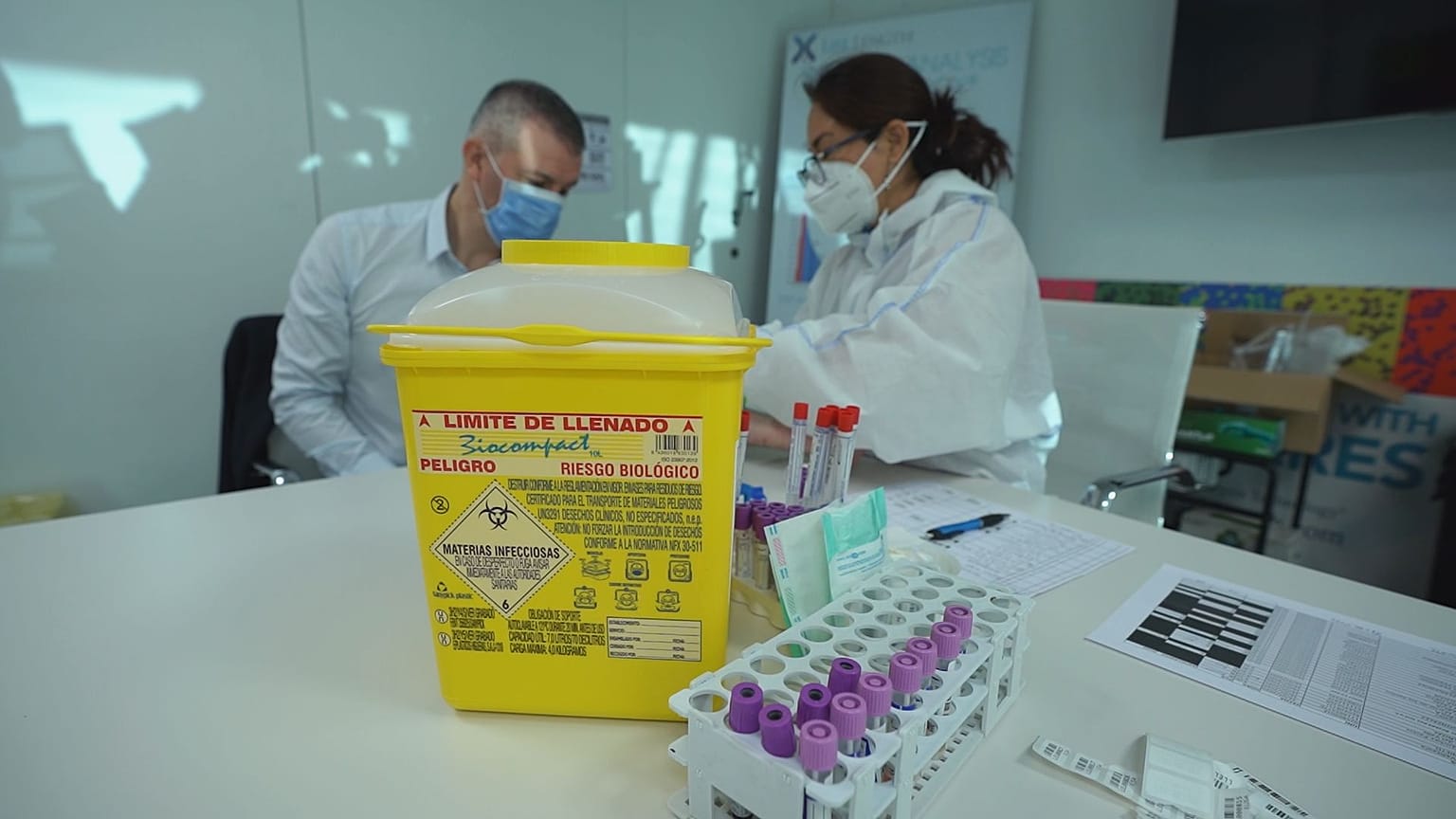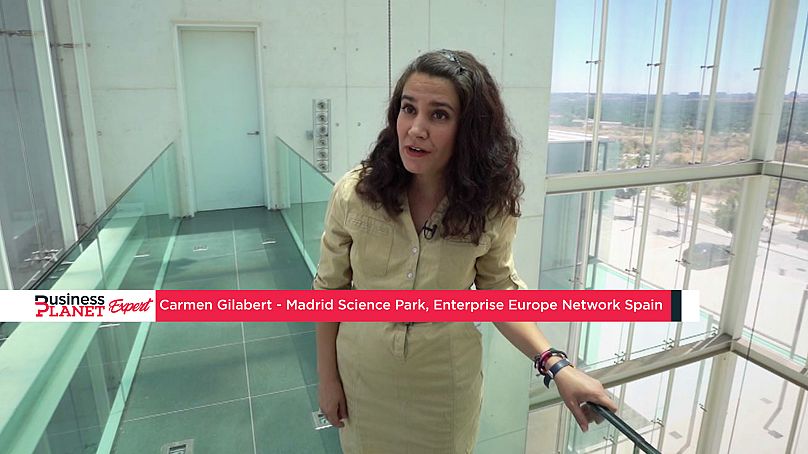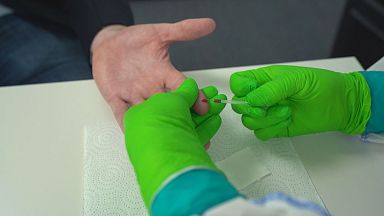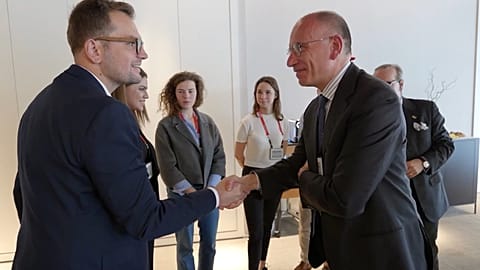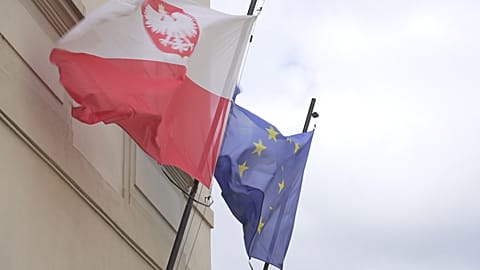Business Planet travels to Madrid to see how the world's biggest support network for SMEs is supporting firms during the COVID-19 crisis.
Business Planet travels to Madrid to see how the world's biggest support network for SMEs is supporting firms during the COVID-19 crisis.
The coronavirus and advances in digital technology are transforming the way businesses communicate, but sometimes you can’t beat a bit of good old-fashioned networking. As the cliche goes, it's not always what you know but who you know that counts. For that reason, no matter how good the company's product or service is, having the right contacts and network can be crucial for any business trying to expand.
 ADVERTISEMENT
ADVERTISEMENT
 ADVERTISEMENT
ADVERTISEMENT
COVID-19 testing
Spanish life sciences firm Life Length is a world leader in cellular screening and telomere measurement. Telomeres are the protective caps at the end of our chromosomes which play a significant role in the ageing process. Every time cells replicate the telomeres shorten until they reach a point where the cells can no longer divide properly. Understanding the length of an individual's telomeres can offer a clear insight into how well that person is ageing and what steps they can take to slow down the process.
Since the start of the pandemic, however, the company has diversified from its core business by using its expertise to set up a COVID-19 testing service. Life Length CEO, Stephen Matlin says the company made the move in a bid to help address the coronavirus crisis hitting Spain.
"We do the three types of tests that are available in the world today. One is the PCR test, which determines whether someone has the virus or not, from nasal and oral swob, and there are two types of blood test. One measures the presence of antibodies, yes or no. This is called a quick test. And then there is a more sophisticated test called an ELISA, which actually quantifies the level of antibodies. So we do all three of those tests here.”
According to an independent study by Yale University, the firm’s tests are some of the most reliable for COVID-19. To set up the diagnostic service, Life Length turned to the Enterprise Europe Network (EEN) for help. The company has been a member of the network since 2014.
For Matlin, the practical support the firm has received from the EEN to get the testing service up and running has been crucial.
“The support of the network was very vital. To start with they helped us in sourcing the needed reagents and chemicals - they were very scarce and difficult to find - by getting us contact with suppliers that we didn’t traditionally work with and then they helped us to provide storage facilities that these materials required. And then the next thing that was critical is that they helped us to disseminate the fact that we were offering these services, which is not something we’ve traditionally done, to potential clients, hospitals, residences and the government.”
A network for small business
Active in more than 60 countries, the EEN is the world’s largest support network for SMEs. 3000 local experts from more than 600 member organisations provide a broad range of services, including advice on how to get EU funding and how to protect intellectual property.
Carmen Gilabert, who helps run the network in Spain, says the EEN further assisted Life Length by allowing the company to use the network's own lab facilities located at the Madrid Science Park.
"From the Madrid Science Park we offer tailored professional services and also infrastructure, like pre-equipped laboratories for innovative science and technology-based companies.”
Speaking more broadly about what the network can offer businesses, she said: "We basically help SMEs to innovate and grow quickly. The network provides advisory services in different fields, like how to access new markets, finance and funding. And it also manages a powerful tool, which is a database, with business offers and requests, so that companies can find the right international partners to work with.”
The EEN in a nutshell
The Enterprise Europe Network seeks to help small and medium-sized enterprises (SMEs) innovate and grow both inside the EU and beyond.
Offering a wide range of services, the EEN seeks to help businesses find the right international partners to expand overseas; receive the advice they need to grow internationally; bring their innovative ideas to commercial success on international markets.
All SMEs with international ambitions can benefit from the support of the Enterprise Europe Network.
The Enterprise Europe Network is the world’s largest support network for small and medium-sized enterprises. Carmen Gilabert helps run the network in Spain. Business Planet spoke to her about what services the EEN offers.
How do you help small companies expand and go global?
The Enterprise Europe Network is a powerful network of business contacts and innovation leaders around the world. We count regional innovation agencies, chambers of commerce, science parks or universities as members. Almost all the international activity for our incubated businesses is done through the network.
If I’m an SME and I’m interested in the Enterprise Europe Network, what do I need to do?
"I would simply advise you to visit the website een.ec.europa.eu where you can check all the services and get in touch with your local Network contact point by selecting the country and city closest to where your business is based. You can also follow our social media channels and watch our success stories to learn how we helped companies."
What type of firms qualify for this support?
"The Enterprise Europe Network supports entrepreneurs and companies from almost all sectors: women entrepreneurship, creative industries, tourism and cultural heritage, textile and fashion, aeronautics and space, agrofood, healthcare, BioChemTech are just a few."
Useful links














